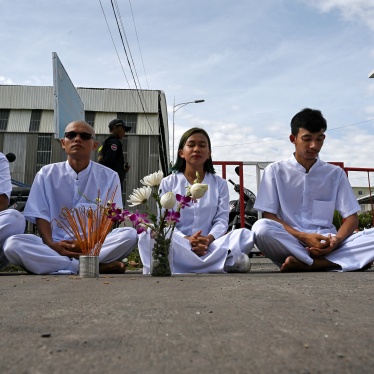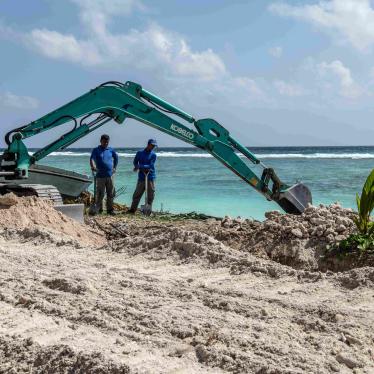This week, Indian authorities detained Sonam Wangchuk, a prominent climate activist and educator from the Himalayan territory of Ladakh, and others participating in a nearly 1,000-kilometer march from Leh, the provincial capital, to the national capital, Delhi. Wangchuk and approximately 120 activists were demanding a greater say in local governance and stronger environmental safeguards.
The police stopped Wangchuk and other activists at the Delhi border and detained them at a number of police stations. The activists alleged that the police sought to prevent them from gathering at the memorial to Mohandas Gandhi on the anniversary of his birth, October 2. The authorities eventually released Wangchuk and the others and escorted them to the Gandhi memorial.
Until August 2019, Ladakh was part of Jammu and Kashmir, before the Indian government revoked the state’s special autonomous status and divided it into two centrally governed territories. Ladakh became a separate administrative unit. The march, supported by two civil society groups, Leh Apex Body and Kargil Democratic Alliance, included demands for statehood, employment, political representation, and the right to make decisions related to natural resources.
Residents of Ladakh are increasingly facing the effects of climate change, which has made the region more prone to flash floods and landslides. Large-scale urbanization has exacerbated the situation. Environmentalists say unregulated tourism and development projects have put the region’s fragile ecosystem at further risk.
Delhi police said the march violated the prohibitory orders in place in Delhi, which prevent any gatherings of five or more people. Opposition leaders have called the detentions “unacceptable” and “undemocratic.”
The Indian government has increasingly criminalized dissent by preventing peaceful protests, instituting internet blackouts, and censoring social media. The authorities have also used draconian laws to arrest activists, journalists, academics, and other critics, and have targeted civil society organizations under foreign funding laws, trumped-up financial investigations, and even anti-terrorism legislation. It has also jailed environmental activists, including on the colonial-era crime of sedition.
Dozens of people of all ages took part in the 30-day march from Ladakh to Delhi, aimed at protecting their way of life and the environment. Instead of taking unlawful action to silence them, the Indian government should work with activists and their communities to protect the Himalayan region from further environmental degradation.








